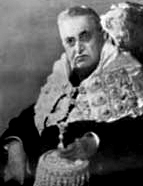

JMR was well aware that, within the context of classicising poetics, imitation and emulation of models would be crucial. He sporadically recalls Petrarch or Sannazzaro. However, he superimposed this awareness with a fascination for imitatio vitae. And because, in his eyes, lyric poetry mirrors life and Camões sings nothing but “pure truths”, he subordinated the architecture of Lírica to the “Infanta thesis” – an edition he vainly dubbed “critical” and which once again enjoyed the cooperation of Afonso Lopes Vieira (1932). If the ambition to reconstruct “a kind of vivid diary” required the elimination of apocrypha accumulated over centuries, the vague and impressionistic nature of the selection process (“we subjected each composition to the triple criterion of quality of language, psychological meaning and intrinsic value” – p. XXX) creates a vicious circle: underlying the selection and validating it, the “Infanta thesis”... António Sérgio, Alfredo Pimenta and Domingos Maurício, S.I., spoke out against this biographism. JMR reacted in “A tese da Infanta nas Líricas de Camões. With a letter from Afonso Lopes Vieira” (1933). True to form, he remained unshaken, without questioning the subjective arbitrariness of the conjectures that led him to play with the texts as if they were pieces of a puzzle or evidence of a conspiracy.
JMR was not a historian. We can also see this in the works that most directly fit into this genre: an edition, in which he intervened as a philologist (Registos Paroquiais da Sé de Tânger, 1922); occasional interventions, where his desire to highlight Portugal shines through, such as “A propósito do Descobrimento da Austrália pelos Portugueses” (1931). JMR is someone who does not dismiss history as a discipline and noble knowledge, on a par with philology or geography, and an aid to understanding literature. However, his own historicity can blind him, as in “On the interpretation of a passage from ‘Os Lusíadas’ (I, 6-7)” (1930). That, in the dedication of the epic, D. Sebastião is the “fatal wonder of our age, / Given to the world by God, who commands all” (I, 6), seems to him an editorial error. Locked in his worldview; oblivious to what, in the panegyric rhetoric of the proem, infringed on his doxa; despising the historical dimension of the idea of the Fifth Empire, JMR classifies as “nonsense” (p. 19) a reading that attributed to Camões “what simple common sense would not allow him to write, that is, that Dom Sebastião was given to the world by God to rule the whole world” (p. 18).
This work is financed by national funds through FCT - Foundation for Science and Technology, I.P, in the scope of the projects UIDB/04311/2020 and UIDP/04311/2020.
